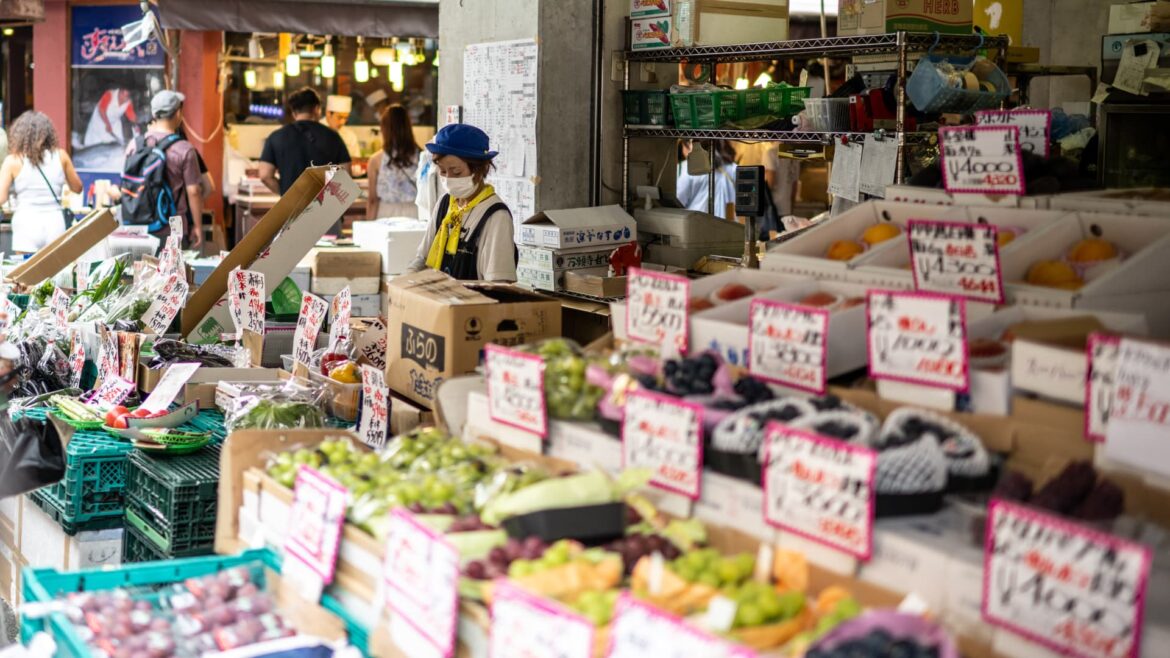A shop staff works in a shop at the Tsukiji Outer Market in Tokyo on August 22, 2025. (Photo by Philip FONG / AFP) (Photo by PHILIP FONG/AFP via Getty Images)
Philip Fong | Afp | Getty Images
Japan’s core inflation rate fell to its lowest since November 2024, coming in at 2.7% for August and marking a third straight month of decline.
The core inflation figure — which strips out prices of fresh food — was in line with the 2.7% expected by economists polled by Reuters.
Headline inflation in the country also dropped to 2.7%, coming down from 3.1% in July and marking a fresh low since November 2024.
The so-called “core-core” inflation rate, which strips out prices of both fresh food and energy and is closely monitored by the Bank of Japan, was at 3.3%, down from 3.4% in July.
The inflation figure comes as the Bank of Japan is set to announce its rate decision later Friday. The Reuters poll of economists expects the BOJ to keep its benchmark policy rate at 0.5%.
In a Sept. 12 note, HSBC analysts also agreed with the consensus, but forecasted that the BOJ would raise rates by 25 basis points at its October meeting.
The analysts said that BOJ officials are looking for signs of economic resilience, “and we believe that the second quarter GDP print, which outperformed market expectations, certainly delivered.”
Japan’s second-quarter GDP came in above expectations, posting a 0.3% quarter-on-quarter growth in the second quarter of 2025, mostly due to export resilience.
This was compared to the revised 0.1% growth seen in the first quarter, and was higher than the 0.1% increase expected by economists polled by Reuters.
Furthermore, with its U.S. trade deal finalized, Japan’s exporters got some relief from the risk of higher tariffs, although HSBC warned that a slowdown in global trade could still impact them.
In late July, Tokyo reached a deal with Washington to lower tariffs on Japanese exports to 15%, down from 25% that U.S. President Donald Trump had threatened in his “tariff letter.”
On a separate note, they added that Japan’s elevated inflationary pressure — driven by high rice prices — is also prompting louder calls for further rate hikes.
Senior Liberal Democratic Party member Taro Kono had reportedly said on Sept. 9 that “If the Bank of Japan delays a rate increase, I think it would mean inflation will continue and everything we import would be higher.”
— This is breaking news, please check back for updates.


AloJapan.com